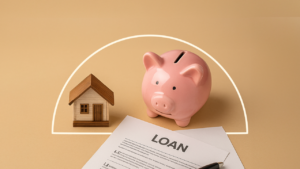Struggling with bad credit? How the Trump administration affects credit

Struggling with bad credit can make it seem difficult to achieve your financial goals. After all, having a poor credit score can make it much harder to qualify for loans or refinance existing debt at a lower rate. Now that Donald Trump has been sworn into office as president, you may wonder how his administration’s policies could affect your current or future debts.
Depending on how Trump implements tariffs, it could influence how difficult it is for the Federal Reserve to lower interest rates. Plus, his Consumer Financial Protection Bureau (CFPB) hiring decision and the administration’s review of pending rules could impact whether medical debt is removed from credit reports. However, while policy changes can affect your finances, there are still actions you can take to better manage debt and achieve a higher credit score — no matter who is in the White House.
Can a new presidential administration affect your credit?
A new presidential election can influence interest rates on loan products indirectly with policy decisions. However, the Federal Reserve, which is an independent government organization, has the final say on whether to raise or lower rates based on economic data. For example, although President Trump called for lower rates, the Fed decided to hold rates steady at its January meeting.
That said, the president has the authority to fire the director of the Consumer Financial Protection Bureau (CFPB), an organization that creates and enforces rules to protect consumers. President Trump fired the director Joe Biden appointed, Rohit Chopra, on Feb. 1, 2025. During his tenure, he pushed regulation that would remove medical debt from credit reports — a move that could help consumers that have bad credit as a result of medical bills.
What policies under the Trump administration could affect people’s finances?
Several policies enacted under the administration could impact the price of goods and services or interest rates.
Tariffs
The Trump administration announced that it would enact 25 percent tariffs on imports from Canada and Mexico and a 10% tariff on Chinese goods on Feb. 1, 2025, but decided to pause them for one month a few days later.
Tariffs, which are taxes on imports, could lead to a rise in home insurance and auto insurance prices, along with other goods and services if companies pass the increased costs to consumers. As a result, this could lead to consumers having less money to pay off debt or relying on credit more.
That said, exactly how tariffs could impact consumers depends on several factors, including how they are implemented. “Some of the worst case scenarios which are feared from tariffs, depending on their implementation and application, include a further ignition of inflation, potential retaliation by targeted countries and constrained economic growth,”says Mark Hamrick, Bankrate’s senior economic analyst.
In addition to potentially increasing the price of insurance, tariffs could make car loans and other auto loans more expensive or at least keep rates elevated.
If tariffs do have a feared inflationary impact, then the Federal Reserve could find it more challenging to lower interest rates further. That means products including auto loans wouldn’t see substantial reductions in interest rates offered.— Mark Hamrick, Bankrate Senior Economic Analyst
Trump administration’s evaluation of CFPB rules
Trump has issued an executive order that pauses recent CFPB regulations for review, which includes the rules for removing credit cards sent from credit reports, buy now pay, pay later loans and credit card late fees. As a result, it’s not certain if the rule that removes medical debt from credit reports, scheduled to take effect March 2025, will stand.
Student loan policy
The Trump administration hasn’t published its student loan agenda, based on Trump’s rhetoric in June 2024 on the campaign trail, Trump likely won’t defend Biden’s SAVE plan, which is currently paused. While campaigning last year, he referred to Biden’s broad forgiveness plan as a “vile publicity stunt.” Although it’s unclear what will happen to the Department of Education’s income-driven repayment (IDR) plans, during Trump’s first term, he proposed consolidating all of the plans into a single one.
As of this writing, if your student loan was enrolled in the SAVE plan, your payments are paused. But if the legislation is officially shot down, payments will resume. If this happens, you’ll have to start making payments to late fees and damage to your credit. If you can’t afford to make payments, you could apply for deferment or forbearance — two plans that allow you to stop payments temporarily.
Capping credit card rates
In 2024, Trump proposed capping credit card interest rates at 10 percent. While this move would make paying off credit card debt much easier, some economists believe credit card issuers would respond by restricting credit card access.
“Capping credit card interest rates could reduce interest expenses but could also cause banks to impose stricter lending criteria, which could have the adverse effect of limiting credit for individuals with low credit scores,” says Shawn DuBravac, chief economist, PhD economist, CFA and CEO of Avrio Institute.
How should Americans work on their credit with a new administration?
Some steps you can take to improve your credit, regardless of who is in the Oval Office, include paying down debt and paying all your bills on time.
Consumers and prospective borrowers are advised to focus on optimizing their personal finances, including by paying down/off the highest cost debt led by credit rate interest— Mark Hamrick, Bankrate Senior Economic Analyst
When you combine an effective debt repayment strategy with paying your bills on time, he says the benefit is a higher credit score which leads to lower interest on borrowing.
You can also raise your credit score by using products designed to help you build or rebuild credit, such as credit-builder loans. When you take out a credit-builder loan, a lender deposits its own money into a savings account or CD while you make payments that are reported to the three major credit bureaus — Equifax, Experian and TransUnion. After the loan is paid off, your remaining balance.
If you can’t afford to pay your debt, contact your lender to see if it offers a relief program. For example, some lenders may offer hardship programs that allow you to pause payments if you’ve lost your job. Also, keep in mind that if you’re having trouble creating a debt repayment plan, you could get help from a credit counselor in exchange for a small one-time payment and monthly fee.
The bottom line
The Trump administration’s policies could indirectly impact borrowing costs. Also, the costs of goods and services could rise if Trump implements tariffs on Mexico and Canada. As a result of higher expenses, you may end up with less money to pay off debts.
However, the good news is that you can improve your credit with careful planning and consistent on-time payments. Regardless of who is president, the usual rules about building credit and maintaining strong finances apply.
Why we ask for feedback Your feedback helps us improve our content and services. It takes less than a minute to complete.
Your responses are anonymous and will only be used for improving our website.
You may also like

The best debt consolidation loans for bad credit in 2025


How to get a credit card with bad credit



